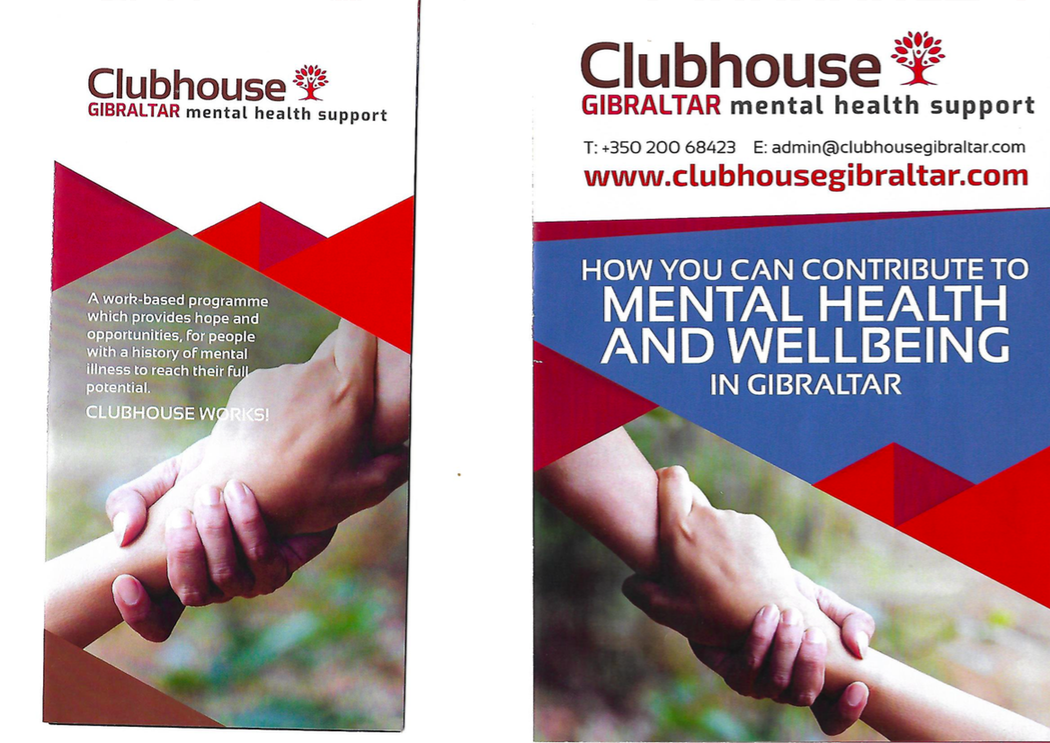Inside Our ADHD Minds: Navigating Challenges And Strengths

Table of Contents
Understanding the ADHD Brain: Challenges We Face
ADHD, or Attention-Deficit/Hyperactivity Disorder, presents a unique set of challenges stemming from differences in brain function. These challenges aren't signs of weakness; rather, they are inherent aspects of how ADHD minds process information. Let's examine some key difficulties:
Attention and Focus Difficulties
The core characteristic of ADHD is difficulty with attention and focus. This manifests in several ways:
- Inattention: Difficulty sustaining attention in tasks or play, easily distracted, seeming not to listen when spoken to directly.
- Distractibility: Constantly shifting focus to irrelevant stimuli, difficulty filtering out distractions.
- Difficulty completing tasks: Struggling to finish tasks, even those of interest, due to shifting attention.
- Losing things: Frequently misplacing items necessary for tasks or activities.
- Interrupting conversations: Interrupting or intruding on others, often unintentionally.
These difficulties aren't simply a matter of willpower; they're rooted in neurobiological differences in brain structures involved in executive function, specifically affecting the prefrontal cortex responsible for focus and planning. Different ADHD subtypes exist, including predominantly inattentive presentation, predominantly hyperactive-impulsive presentation, and combined presentation, impacting how these difficulties manifest. For more detailed information on the neuroscience of ADHD, refer to research published by the National Institute of Mental Health (NIMH).
Hyperactivity and Impulsivity
Beyond inattention, many individuals with ADHD experience hyperactivity and impulsivity. This can include:
- Excessive fidgeting or restlessness: Inability to sit still, constant movement, pacing.
- Interrupting conversations and activities: Difficulty waiting their turn, interrupting others without thinking.
- Difficulty waiting: Struggling to delay gratification or wait for their turn in lines or activities.
- Emotional impulsivity: Acting on emotions without thinking through the consequences, leading to regrettable actions.
These behaviors can significantly impact social interactions, academic performance, and relationships. For example, impulsivity can lead to conflict with peers or authority figures, while hyperactivity might disrupt classroom learning or workplace productivity. Managing hyperactivity and impulsivity often involves strategies like regular physical exercise to burn off excess energy and mindfulness techniques to improve self-regulation.
Emotional Regulation Challenges
Individuals with ADHD often face challenges in managing their emotions. This emotional dysregulation can manifest as:
- Frustration and anger outbursts: Difficulty coping with frustration, leading to angry responses.
- Mood swings: Rapid and unpredictable shifts in mood, from euphoria to sadness.
- Anxiety and low self-esteem: Increased vulnerability to anxiety and feelings of inadequacy due to struggles with daily tasks.
- Emotional sensitivity: Heightened sensitivity to criticism or perceived rejection.
The connection between emotional dysregulation and ADHD is complex. Difficulties with executive functions, such as planning and self-control, can directly impact emotional regulation. Therapy, particularly cognitive behavioral therapy (CBT), and techniques such as mindfulness and deep breathing exercises can be invaluable in developing coping mechanisms for emotional regulation.
Unleashing the Power of ADHD Minds: Our Unique Strengths
While ADHD presents challenges, it also bestows unique strengths. Understanding these strengths is vital for self-acceptance and leveraging them to thrive.
Creativity and Innovation
Many individuals with ADHD possess exceptional creativity and innovation. Their minds often operate differently, generating out-of-the-box ideas and approaching problems from novel perspectives. This makes them well-suited for professions requiring creativity and unconventional thinking, such as:
- Entrepreneurship: ADHD minds often thrive in entrepreneurial ventures, driven by passion and a unique vision.
- Arts and design: The creative flair often associated with ADHD can translate into success in fields such as painting, music, writing, and design.
The ability to think differently is a powerful asset. Hyperfocus, the ability to intensely concentrate on a task for extended periods, can be a game-changer in creative pursuits, leading to breakthroughs and remarkable achievements.
Hyperfocus and Intense Interests
Hyperfocus, while sometimes problematic due to potential neglect of other tasks, is a remarkable strength. When engaged in an activity of intense interest, individuals with ADHD can demonstrate extraordinary focus and dedication, mastering skills and accomplishing complex projects. Positive applications include:
- Mastering skills rapidly: The ability to deeply immerse themselves in a task allows for rapid skill acquisition.
- Completing complex projects effectively: When motivated by interest, individuals with ADHD can achieve remarkable feats of productivity.
It's crucial to recognize and harness this hyperfocus ability. By identifying and strategically engaging in activities that ignite this intense focus, individuals can achieve remarkable results.
Energy, Enthusiasm, and Passion
Individuals with ADHD often possess high levels of energy, enthusiasm, and passion. This intense energy can be a driving force, fueling their accomplishments and contributing to their dynamism. When channeled constructively, this energy can lead to:
- Increased productivity: High energy levels can lead to impressive productivity when focused on interesting tasks.
- Successful volunteer work and activism: Their passion can drive impactful engagement in charitable causes and social movements.
Finding activities that align with their interests is key to harnessing this abundant energy constructively.
Strategies for Navigating ADHD: Practical Tips and Support
Navigating the complexities of ADHD requires a multi-faceted approach. Seeking professional help and implementing effective strategies are crucial steps toward managing symptoms and thriving.
Seeking Professional Help
A crucial first step is seeking a professional diagnosis and treatment plan. A qualified healthcare professional, such as a psychiatrist or psychologist specializing in ADHD, can provide:
- Diagnosis: Accurate diagnosis is essential for understanding specific challenges and developing effective strategies.
- Medication: Medication can be effective in managing core ADHD symptoms like inattention and impulsivity.
- Therapy: Therapy, such as CBT, can teach coping mechanisms and strategies for managing symptoms and improving emotional regulation.
- Coaching: ADHD coaching can provide personalized support, strategies, and tools to navigate daily life.
Resources for finding ADHD specialists include your primary care physician, online directories, and local mental health organizations.
Lifestyle Adjustments
Implementing lifestyle adjustments can significantly impact the management of ADHD symptoms. These changes support better brain function and enhance self-regulation:
- Regular exercise: Physical activity helps reduce hyperactivity and improve focus and mood.
- Healthy diet: A balanced diet provides the nutrients essential for brain health and improved cognitive function.
- Sufficient sleep: Adequate sleep is crucial for improved attention, mood, and overall well-being.
- Organizational strategies: Employing effective organizational techniques can improve task completion and reduce stress.
Building Supportive Networks
Building a strong support network is essential for coping with the challenges of ADHD. This network can include:
- Support groups: Connecting with others who understand the challenges of ADHD can provide valuable emotional support and shared experiences.
- Family support: Educating family members about ADHD can lead to increased understanding and support.
- Understanding employers: Open communication with employers about ADHD and reasonable accommodations can facilitate a supportive work environment.
Conclusion
Understanding the nuances of your ADHD mind is a journey, not a destination. By embracing your strengths and proactively managing challenges, you can unlock your full potential. Remember that the challenges of ADHD are real, but they don't define you. Your ADHD mind is capable of remarkable things. Start your journey today by researching available resources and connecting with support networks for ADHD minds. Embrace the unique power within your ADHD mind and thrive!

Featured Posts
-
 Pl Retro On Sky Sports How To Watch Premier League Classics In Hd
May 13, 2025
Pl Retro On Sky Sports How To Watch Premier League Classics In Hd
May 13, 2025 -
 Coinsilium Groups Forza A Review Of The Gibraltar Launch Event
May 13, 2025
Coinsilium Groups Forza A Review Of The Gibraltar Launch Event
May 13, 2025 -
 Cassie And Alex Fines First Red Carpet Appearance Since Pregnancy Announcement
May 13, 2025
Cassie And Alex Fines First Red Carpet Appearance Since Pregnancy Announcement
May 13, 2025 -
 The Nightmare In Gaza Families Of Hostages Endure Unending Agony
May 13, 2025
The Nightmare In Gaza Families Of Hostages Endure Unending Agony
May 13, 2025 -
 New York Islanders Secure No 1 Nhl Draft Pick
May 13, 2025
New York Islanders Secure No 1 Nhl Draft Pick
May 13, 2025
